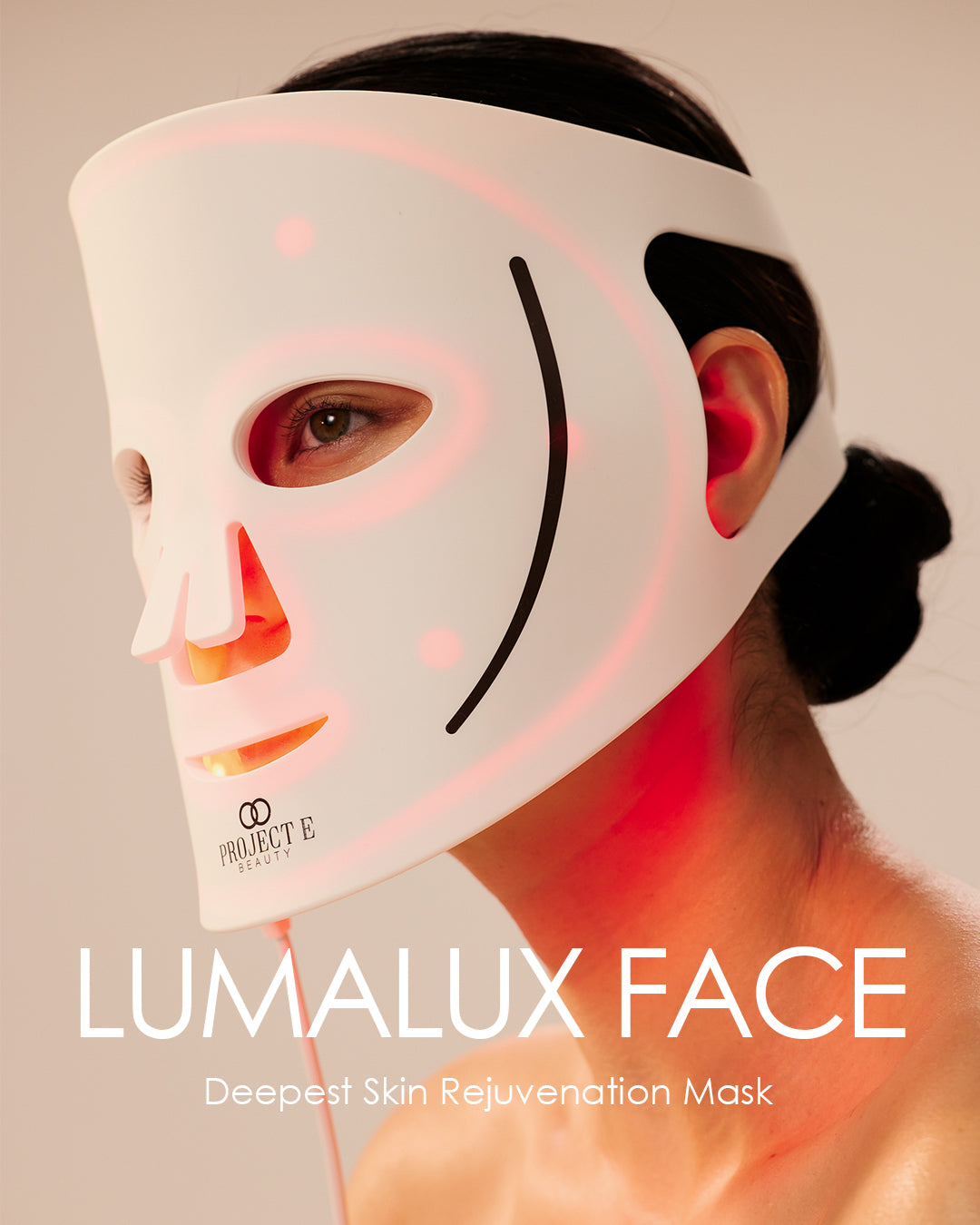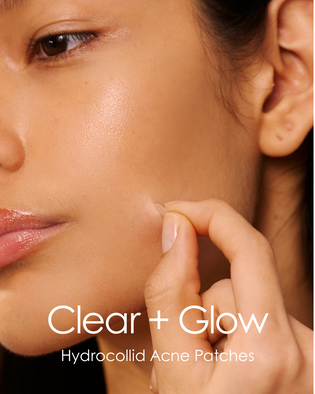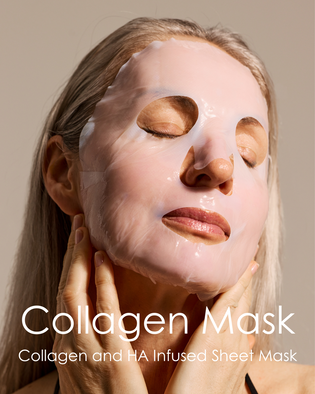
7 Ways to Prevent Collagen Loss After The Age of 25
Reading time: 5 minutes
IN THIS ARTICLE:
- 01 What is Collagen? Explained
- 02 First, What Are the Key Benefits of Collagen?
- 03 Why Does Collagen Production Decrease After We Turn 20?
- 04 Collagen loss with age, what’s the result?
- 05 7 Ways to Boost Collagen Production as We Age
- 06 Quit Sunbathing and Wear SPF
- 07 Antioxidant-Rich Diet
- 08 LED Light Therapy
- 09 Stay Hydrated
- 10 Invest in Proper Skincare
- 11 Frequent Facials
- 12 Skincare Technology
- 13 The Takeaway
We lose 1% of collagen per year after the age of 25. But, what is collagen? Collagen is a precious protein that helps to maintain skin firmness and elasticity. Why do babies have the most desirable skin of all? Unfortunately, collagen decline with age is a real (and cruel) reality that leads to the appearance of fine lines, sagging, and general signs of skin aging. But all is not lost, there are many simple skin habits we can adopt to slow down collagen decline and boost new collagen stores even as we age. Below we take you through some of our favorites and show you the easiest way to incorporate them into your daily skin rituals.
What is Collagen?
Collagen is one of the primary structural proteins in the body, helping to form skin, muscles, bones, and connective tissue and organs. It is responsible for around 30% of our body’s protein, so it's far from insignificant. Collagen is produced by fibroblasts and is made of 3 vital amino acids proline, glycine, and hydroxyproline. Ok, enough science how do we (desperately) hang onto our previous stores and prevent collagen loss with age?
First, What Are the Key Benefits of Collagen?
- Structural support
- Smooths fine lines and wrinkles
- Prevents skin laxity
- Wound healing
- Joint health
- Improved skin health and overall complexion
- Tissue repair
- Better gut health
Why Does Collagen Production Decrease After We Turn 20?
Collagen production peaks in your early 20s and gradually declines as you age. This natural decline in collagen synthesis is influenced by various external and lifestyle and other factors
- Aging (it’s natural, don’t worry)
- Sun exposure
- Smoking
- Poor diet
- Poor stress management
- Poor sleep habits
- Inflammation
- Genetics
Collagen Loss With Age, What’s the Result?
- Skin laxity and loss of skin firmness
- Appearance of wrinkles and fine lines
- Dry, brittle hair and slower hair growth
- Weaker nails
- Joint pain, stiffness, and reduced mobility
- Compromised tissue function and loss of muscle mass
7 Ways to Boost Collagen Production as We Age
1. Quit Sunbathing and Wear SPF
Exposure to UV light from the sun is the leading cause of skin aging. Exposure to UV light damages DNA, breaks down collagen, and damages skin cells through oxidative stress. SPF is non-negotiable when it comes to protecting our skin from signs of aging and collagen loss. Choose a broad-spectrum SPF and reapply every 2-4 hours.
2. Antioxidant-Rich Diet
Your diet plays a crucial role in protecting skin health and replenishing collagen stores as we age. An anti-inflammatory diet packed with antioxidant-rich fruits vegetables, and protein is a great place to start.
Antioxidant-rich food
- Tomatoes
- Berries
- Dark chocolate
- Leafy greens
- Olive oil
- Nuts and seeds
- Garlic
- Citrus fruits
Collagen rich food
- Bone broth
- Liver
- Fish
- Collagen powder
- Avocado
- Turkey
- Eggs
- Pumpkin seeds
3. LED Light Therapy
Red light therapy is a powerful anti-aging therapy that boosts collagen production through specific light wavelengths designed to stimulate skin cells to produce more collagen (as well as elastin and hyaluronic acid).
4. Stay Hydrated
We are likely familiar with the link between drinking water and glowing skin, but we may be less aware that proper hydration helps the body to produce more collagen maintaining a supple and elastic complexion.
5. Invest in Proper Skincare
Preventing collagen loss requires a holistic skincare approach that looks at more than just a nicely packaged moisturizer; we should look for active ingredients. Our top three collagen-supporting ingredients are hyaluronic acid, collagen, and retinol.
6. Frequent Facials
Professional salon treatments such as microdermabrasion, chemical peels, and microneedling are all designed to boost the production of collagen. If frequent salon appointments are not an option for you - at-home alternatives can produce similar results.
7. Skincare Technology
While diet, topical skincare, and other approaches can be effective, sometimes our skin needs a little help from the world of beauty tech - especially collagen-boosting devices and technology
Radio Frequency: electromagnetic energy penetrates the dermis to heat collagen stores and generate new collagen cells and other key proteins
EMS: stimulates collagen production, increases skin firmness, targets sagging skin
Electroporation: rapid electrical pulses delivered to the skin create temporary pores in skin cells. This triggers the skin’s natural healing process to regenerate stronger collagen stores
Collagen-boosting technology goes where other practices can’t and we recommend investing in an at-home treatment device to tackle collagen loss head-on.
Our REVA Instant Age Renewal Wand by Project E Beauty is a cutting-edge device that combines 5 potent collagen-boosting technologies to slow down collagen loss and boost overall skin health as we age.
From EMS and revolving electroporation pulse, to radio frequency, ultrasound, and LED, Reva tackles collagen loss at the source to lift, enhance, brighten, and protect our precious skin.
REVA | Instant Age Renewal Wand
5-in-1 skin tightening tool for the ultimate at-home facelift with LED light therapy
The Takeaway
Yes, aging is inevitable, but rapid collagen decline does not have to be. There are many skin care practices we can incorporate to slow down collagen loss and maintain a youthful appearance. From simply drinking an extra glass of water with each meal, to changing up your topical skincare routine or investing in at-home beauty devices, there is at least one new skin habit everyone can implement.
Supporting collagen production is not only important for skin health and appearance, but also serves to support joints, bones, muscles, and connective tissue as we age.
Because collagen is naturally occurring, we can use natural, safe, and effective methods to give it a little boost, I think that’s something we can all get behind. For more on building your perfect skincare routine check out our ultimate guide to skincare in your 30s.

written by Charlotte Rycroft















Leave a comment
This site is protected by hCaptcha and the hCaptcha Privacy Policy and Terms of Service apply.